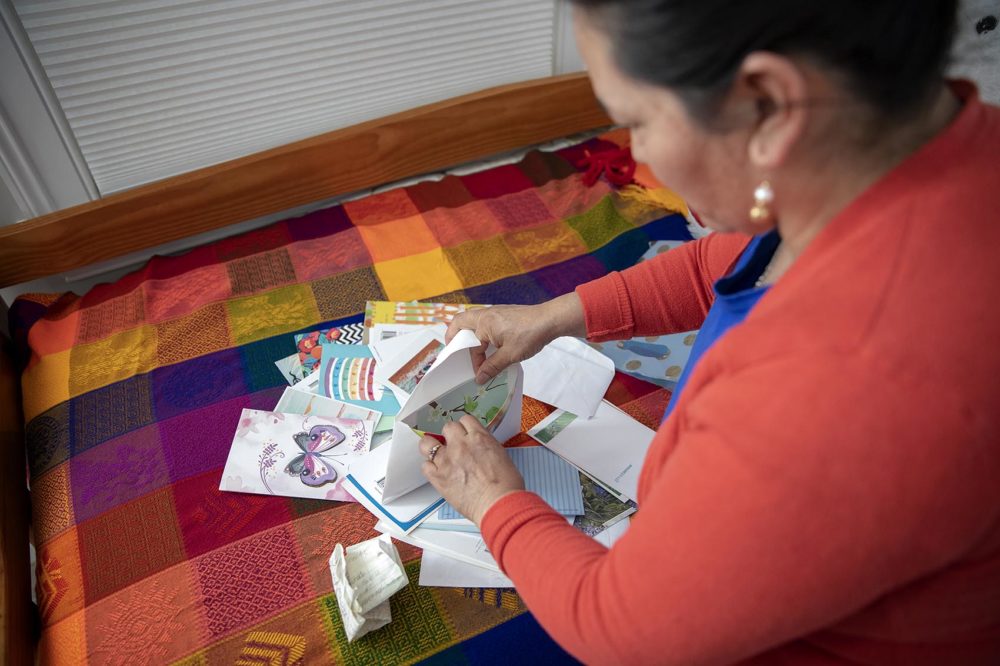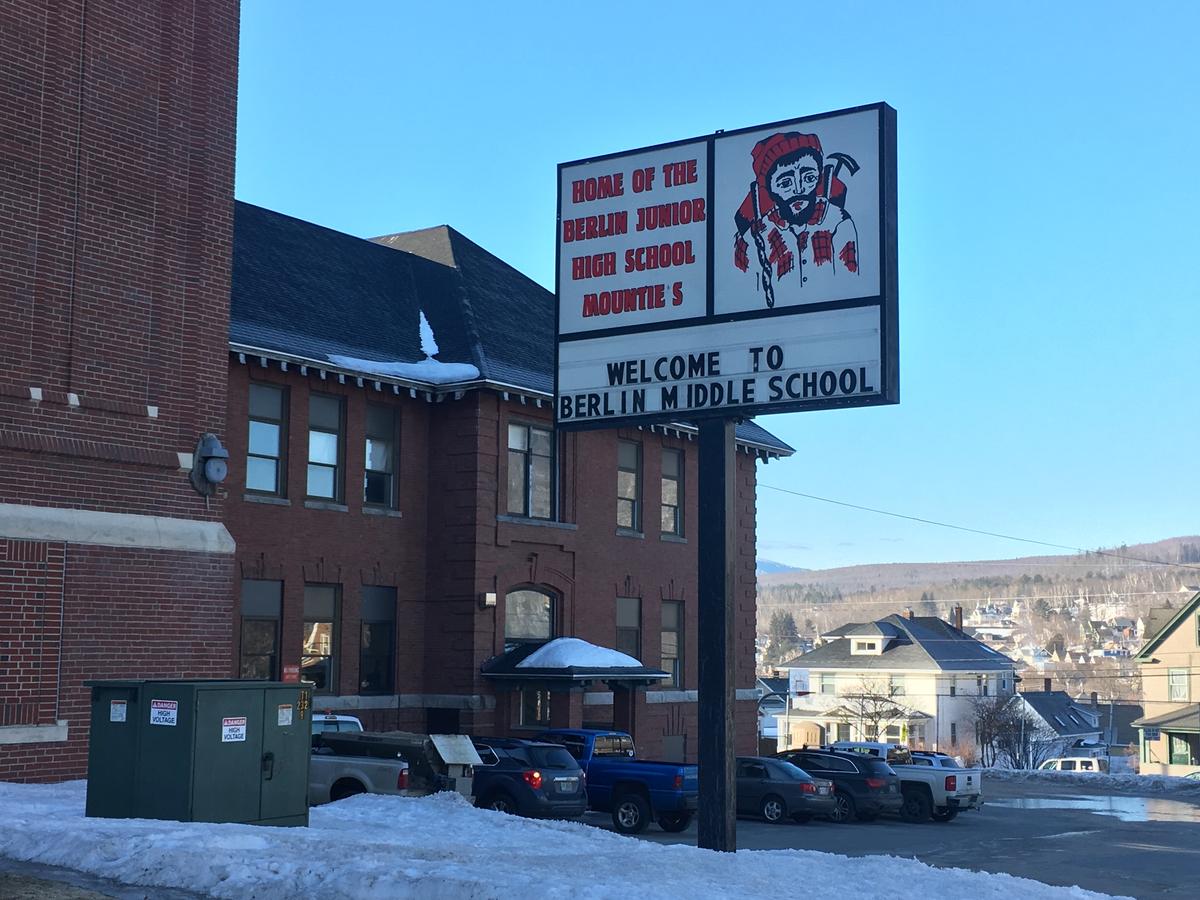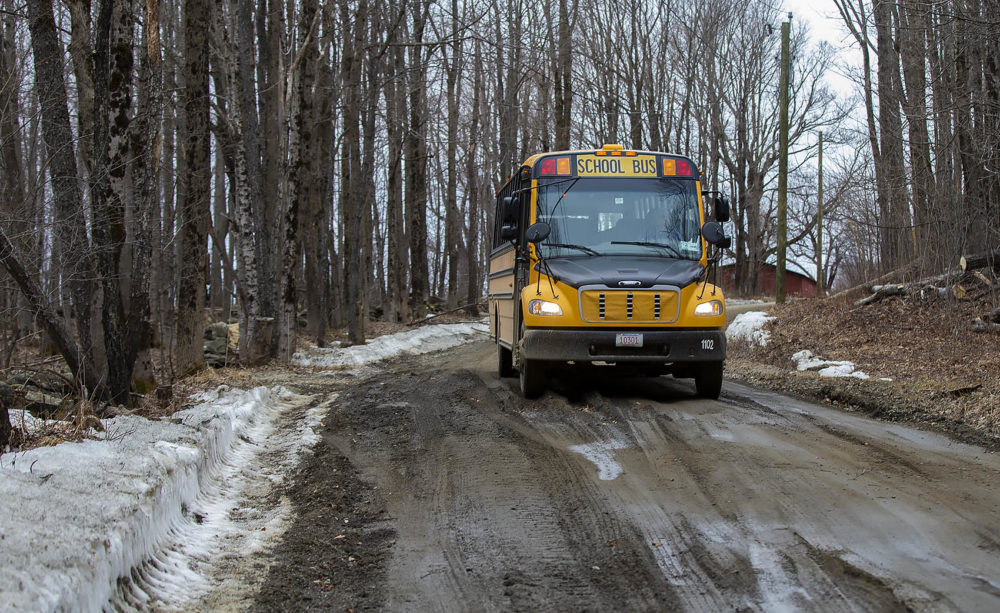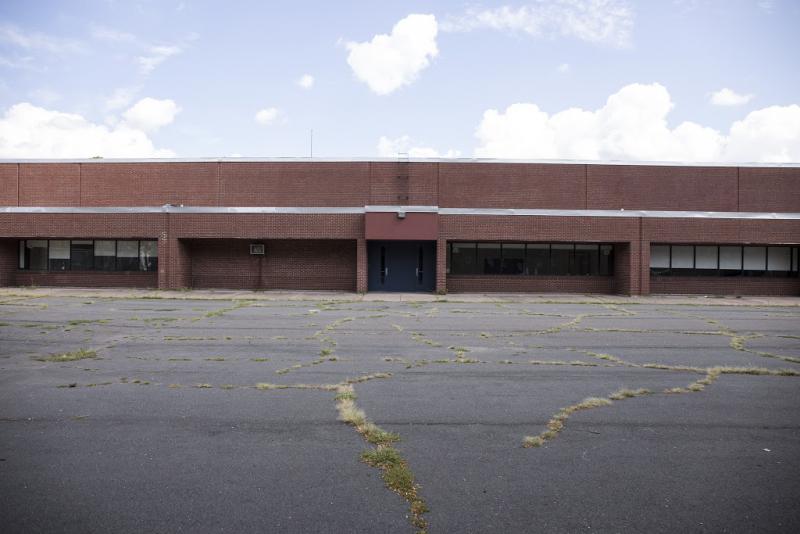Episode 142: Campus Protest Then And Now; Food Insecurity On The Farm
This week on NEXT:
We speak with Teresa Mares about her new book, which explores food insecurity among farm workers in Vermont.
Plus, we take a look at school funding around our region. We’ll talk with NHPR’s Sarah Gibson about her new series, ‘Adequate,’ and listen to reporting from Connecticut Public Radio’s David DesRoches about private philanthropy in public schools.
Finally, we’ll discuss protests on Harvard University’s campus fifty years later, and speak with activists about how student organizing has changed since then.
It’s NEXT.
Photo at the top of the page: Protesters on Harvard University’s campus in 1969. Photo courtesy of Nate Goldshlag
Food Insecurity Among Vermont’s Farm Workers
 We’ve been following the struggles and successes of farmers in our region. A new focus on organic, locally grown food has led to a boom in farmstand and ‘foodie’ culture. But the hard economic realities of milk production in the region has meant the closures of hundreds of farms over the last decade.
We’ve been following the struggles and successes of farmers in our region. A new focus on organic, locally grown food has led to a boom in farmstand and ‘foodie’ culture. But the hard economic realities of milk production in the region has meant the closures of hundreds of farms over the last decade.
That’s hit Vermont especially hard. But there’s another problem that’s not as easy to see from the outside: the people who do the hard work on those farms often aren’t able to get food easily. That food insecurity is a problem with many causes – but immigration policy is at the center.
A new book by the University of Vermont Professor Teresa Mares dives into this issue. It’s called Life on the Other Border: Farmworkers and Food Justice in Vermont. We speak with Mares about her research.
A Woman’s Year in Sanctuary

Maria Merida sifts through birthday cards she received last year from members of the church congregation where she’s been living in “sanctuary” for more than a year. Photo by Robin Lubbock for WBUR
Like the farmworkers Teresa Mares profiles, Maria Merida can’t move freely. In fact, it’s been a year since she’s gone to the grocery store or even on a walk. Because during that time, she’s been staying in a Boston-area church, living in so-called sanctuary in the hopes of avoiding U.S. Immigration and Customs Enforcement, or ICE.
Reporter Shannon Dooling met Merida shortly after she arrived at the church, and recently spoke with her again, bringing us this update.
School Funding in New Hampshire

To make room for students from a shuttered elementary school, Berlin’s middle school in the Hillside Complex will move into the high school. Photo by Sarah Gibson for NHPR
How to pay for public schools is an issue that’s at the heart of every town school board meeting and state legislative session. Many parents and cities have taken to the courts to get what they consider to be adequate funding for school districts.
In a state like Connecticut – where there’s a sharp divide between rich and poor districts – a superior court judge ruled that the state formula for school funding was “irrational” and unconstitutional, but then that ruling was overturned by the state supreme court.
The biggest problem is how to balance funding in a system where property taxes are so vital to a district’s survival. In wealthy suburbs, finding that money’s easy, but that’s not the case in many cities and rural towns.
But, in most New England states there’s at least a mechanism to distribute funding: statewide income and sales taxes can help balance the scales. But what about famously tax-averse New Hampshire? Lawsuits have challenged school funding there, too, and that’s the subject of a new series from NHPR, “Adequate: How a State Decides the Value of Public Education.” NHPR’s Education Reporter Sarah Gibson joins us to discuss her reporting.
Private Money in Public Schools
We mentioned Connecticut’s school funding woes earlier. As it stands, education spending is the largest expense for towns, cities and the state. But even with that investment, Connecticut still has the largest achievement gap in the nation.
Now, hedge fund billionaire Ray Dalio’s foundation has announced it’s giving $100 million to help fix the schools, and the state has pledged to raise $200 million more over the next few years, specifically to help students at risk of dropping out of high school.
But as Connecticut Public Radio’s David DesRoches reports, philanthropic giving to public education doesn’t have such a rosy history.
Rising Transportation Costs for Rural Schools

Joanne Deady’s school bus navigates carefully over an icy lined and greasy mud covered Christian Hill Rd. Photo by Jesse Costa for WBUR
A big cost for many school districts is transportation, especially in very rural districts. That’s especially hard now in the muddy season when the snow has melted and the rain begins.
Reporter Carrie Jung of WBUR took a ride on one of the long routes in Colrain, Massachusetts, in the northwestern part of the state.
50 Years of Activism On Campus
- Protesters from 1969 on campus with current students. Photo courtesy of Nate Goldshlag
- Images of the 1969 Protests at Harvard University. Photos courtesy of Nate Goldshlag
- Images of the 1969 Protests at Harvard University. Photos courtesy of Nate Goldshlag
- Images of the 1969 Protests at Harvard University. Photos courtesy of Nate Goldshlag
Fifty years ago, in April of 1969, a group of Harvard students launched a protest against the University’s role in the Vietnam War.
Now, half a century later, those students who participated in that protest are going back to campus and speaking with students about how activism on campus has changed since then.
Nate Goldshlag is a former Harvard University Student who participated in the 1969 protests, and Sofia Shapiro is a current Harvard University student who is currently active in the Divest Harvard movement. They joined us to discuss how activism on campus has changed in the past fifty years.
Photo at the top of the page: Participants in the 1969 Protests at Harvard return to campus to talk with current students, including those involved in the Divest Harvard movement. Photo courtesy of Nate Goldshlag
New England Music Featured on NEXT
About NEXT
NEXT is produced at Connecticut Public Radio
Host: John Dankosky
Producer: Lily Tyson
Digital Producer: Carlos Mejia
Senior Director: Catie Talarski
Contributors to this episode: Shannon Dooling, John Dillon, Sarah Gibson, David DesRoches, Carrie Jung
Music: Todd Merrell, “New England” by Goodnight Blue Moon, “Wreck of the Hesperus” by Muddy Ruckus, “Waiting for the Sunrise” by Dave Richardson
—
New to NEXT? You can find every episode or one you missed within our archives.
We need your feedback! Send critiques, suggestions, questions, and ideas to next@ctpublic.org. Help us spread the word! If you like what you hear, rate and review us on iTunes.






